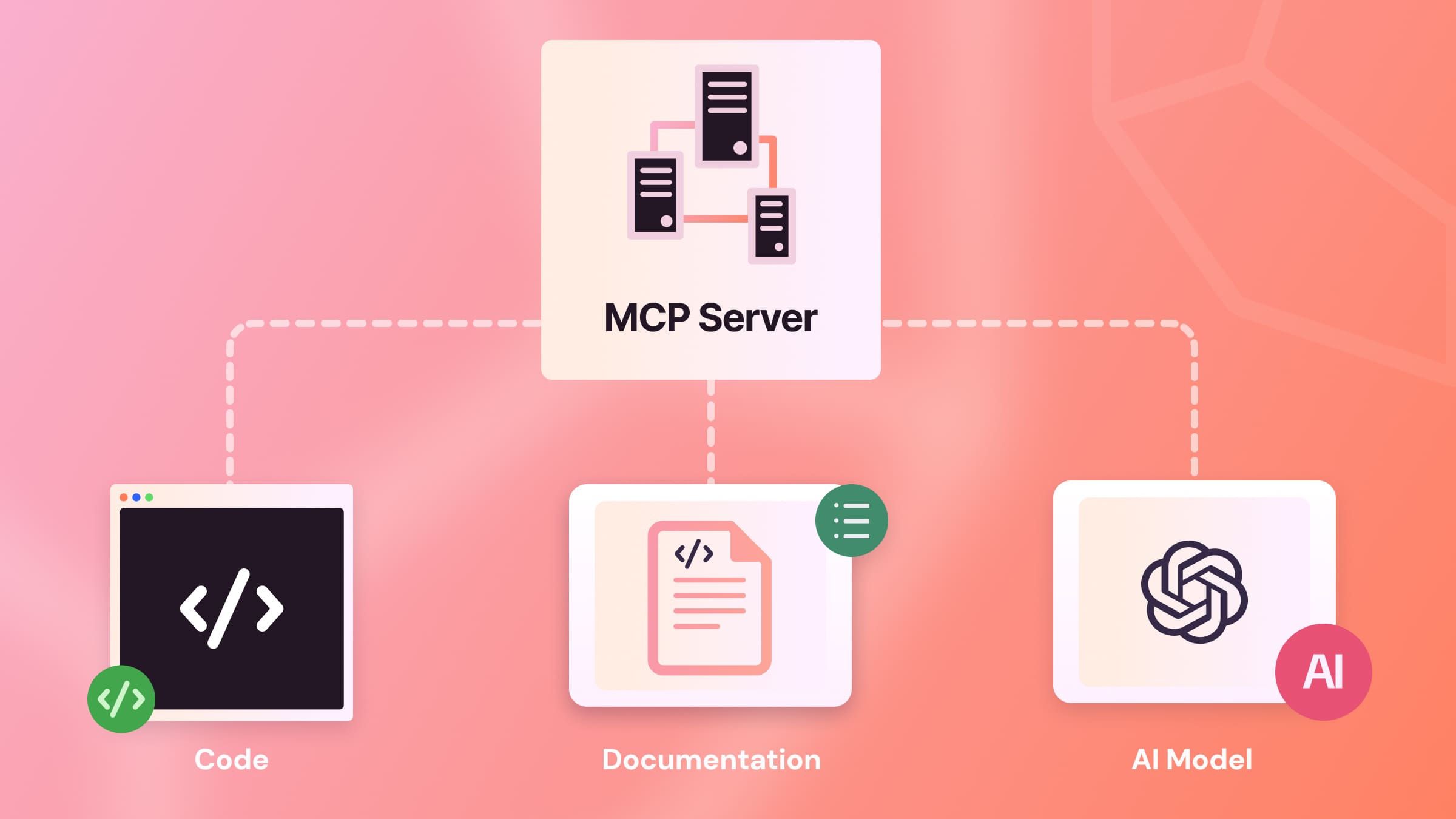What Are MCP Servers and Why They Matter
In the age of AI-assisted development, a new type of infrastructure is quietly transforming how companies deliver information, support developers, and power intelligent products: the MCP server.
Short for Model–Context–Prompt, MCP servers bridge the gap between your product’s codebase, documentation, and large language models (LLMs) like ChatGPT, Claude, or Gemini. In simple terms, they make your product or service "speak LLM" allowing AI tools to understand, query, and interact with your APIs or business logic in a structured, useful way.
Why Should Product Teams Care?
Because MCP servers are more than a technical curiosity—they're a strategic edge. They act as a new interface to your product: one that's language-based, developer-friendly, and instantly accessible via popular tools like VSCode, Slack, or a simple chat window.
Let’s look at three powerful ways MCP servers can elevate your product, engineering, and platform experience:
1. For Digital Products: An AI-Powered Interface for Your Services
Imagine you're a bank or telecom company. Your users already interact with you through apps, websites, or support agents. Now imagine giving them—or their internal teams—an AI copilot that can instantly:
- Retrieve account details
- Simulate a bill forecast
- Trigger service flows (e.g. pause a line, simulate a plan switch)
MCP servers make this possible. They give LLMs a structured, safe way to query your backend—enabling a natural language interface to your business logic.
2. For Development Teams: Supercharge Onboarding and Internal Support
When new developers join a company, they often face a steep learning curve: scattered documentation, tribal knowledge, outdated READMEs.
With an MCP server in place, your new engineers can ask:
- "What does the CreateOrderJob do?"
- "Show me how we handle payments in production."
- "Give me an example of a GraphQL query against the Orders API."
Their Copilot—or any LLM—can give accurate answers based on your codebase and internal docs, because the MCP server provides it with exactly what it needs.
This cuts onboarding time and reduces interruptions to your senior team, letting them focus on building instead of explaining.
3. For API/Product Documentation: A New Dev Experience Layer
If your company offers a public or partner API—think fintech, SaaS, logistics—then you know the challenge of supporting external developers. Docs get outdated, SDKs fall behind, and support requests pile up.
MCP servers let you expose your API metadata to LLMs. The result? Developers can:
- Autocomplete API calls in their IDEs
- Ask, "How do I fetch my last 30 transactions?" and get valid code
- Stay productive without switching tabs or reading through nested docs
It’s like having your best DevRel engineer embedded in every IDE, 24/7.
Not Just Smart—Strategic
The beauty of MCP servers is that they turn your product into an LLM-native interface—one that scales with AI usage trends and gives you more control over how your business logic is accessed, understood, and reused.
At 10 Grounds, we’re building MCP server solutions to help forward-thinking companies:
- Enhance product usability
- Boost developer productivity
- Create AI-first platforms
Explore how our software development services help companies implement intelligent, scalable, and future-ready systems.
And this is just the beginning.
In our next post, we’ll dive deeper into how MCP servers transform internal development workflows and onboarding, helping teams ship faster with fewer bottlenecks.
👉 Stay tuned.



